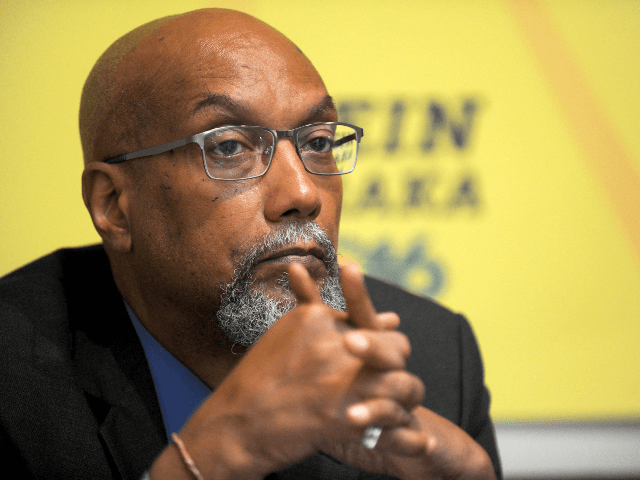In an op-ed published by the Chinese Communist Party’s Global Times on Thursday, Black Agenda Report editor and former Green Party candidate Ajamu Baraka took China’s side against the United States and trashed America as a “white supremacist settler colonial state.”
Baraka found free-market capitalism fundamentally incompatible with the quest for social justice:
For the Black liberation and anti-imperialist movement in the US, we are clear – War is a class issue and we say not one drop of blood from the Black working class and poor to defend the capitalist oligarchy.
It is important that this position is clear because the US state wants to disconnect the ongoing black struggle for human rights, anti-colonialism, and authentic democracy in the US from the broader anti-colonial and revolutionary struggles and movements globally.
The U.S. state wants to project our movement as one concerned only with Black Lives or winning “civil rights” or something called racial justice, which objectively is an impossibility for a white supremacist settler colonial state.
Baraka referred to black Americans as “Africans in the U.S.” and portrayed “racial capitalism” as a predatory force, and “the material basis for white supremacist power.”
On the other hand, Baraka scoffed at the notion of classifying China as a geopolitical threat, dismissing concerns about Chinese aggression in the South and East China Seas as a devious plot to kick off a world war with China in which black people would be obliged to fight and die. He returned several times in the piece to the idea that black lives are especially at risk in the war that could purportedly result from the United States playing any role in the territorial conflicts of the Pacific.
Baraka defended making common cause with the hostile Chinese regime and suggested black Americans should be willing to make such alliances with hostile powers, by quoting Nelson Mandela’s response to criticism of the relationship between the South African liberation movement and regimes such as Cuba, Libya, and Palestine Liberation Organization: “The mistake some make is assuming that their enemies should be our enemies.”
“Our movement – the African radical, anti-imperialist, internationalist movement, sees the Chinese state and the Chinese people much differently than the U.S. state and its ruling class,” he elaborated.
“We take the position that all disputes in the Asia-Pacific region should be resolved solely by the nations of that region,” he wrote, referring disputes between China and several much smaller countries with a fraction of China’s military power who have territorial claims ignored by Beijing, such as Japan, Vietnam, and the Philippines.
Baraka claimed America is the party militarizing the South and East China Seas, discarding China’s conversion of contested islands and atolls into fortresses bristling with missiles and long-range bombers. He suggested “insane” policymakers in the U.S. are contemplating plans to launch preemptive strikes against Russian and Chinese ballistic missiles, presumably as a prelude to provoking a conventional military conflict.
“We are living at a moment of history that is extremely dangerous,” he wrote. “The irreversible decline of the U.S. imperialism and the anxiety it is producing, along with the recklessness and mediocre character of U.S. decision makers, has produced a volatile situation that some argue is more dangerous than at any point during the cold war period with the Soviet Union.”
“Our task must be to take away the power that they have to destroy the world. This is a historic imperative, whether we can do that will determine if we live or die,” he concluded.
Unmentioned in the editorial were China’s practice of debt colonialism through its Belt and Road Initiative, which give Beijing control over Third World nations by loaning them sums they cannot repay for infrastructure projects that are unlikely to turn a profit, and China’s practice of using oppressed people like the Uyghur Muslims of Xinjiang province as slavery.

COMMENTS
Please let us know if you're having issues with commenting.